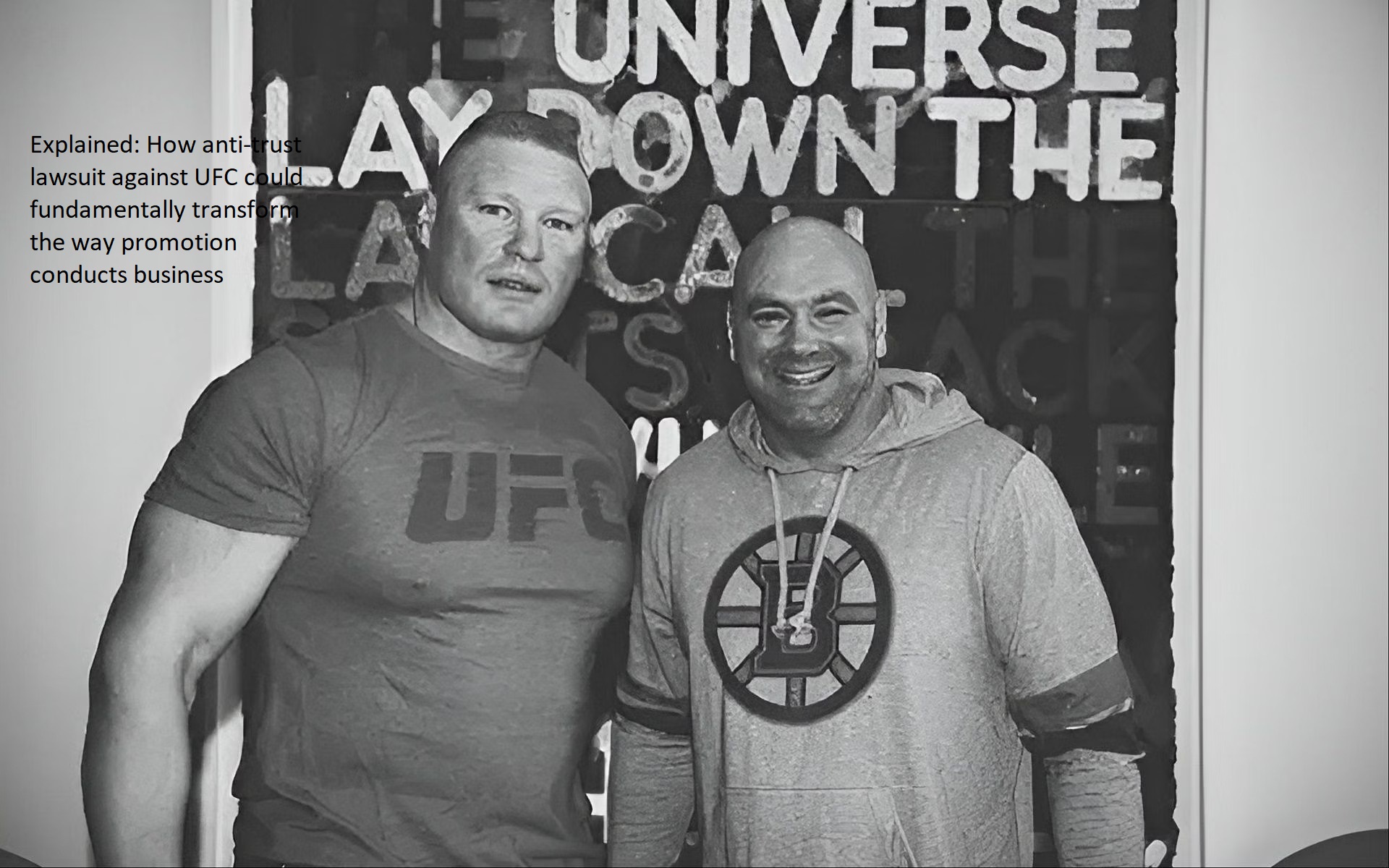The Ultimate Fighting Championship (UFC) is now engaged in a legal conflict that is widely considered to be among the most significant and consequential in the promotion’s whole history.
According to a recent update provided by Bloody Elbow, the anti-trust complaint that was filed against the organization by a number of the organization’s own fighters has just obtained support from the judge who is in charge of supervising the case.
In a nutshell, the judge in issue is seeking to hasten the process of bringing the action to trial. Le vs. Zuffa and Johnson vs. Zuffa are the two separate cases that make up this legal action. Both have been approved to proceed as class-action lawsuits, but they will be tried individually; the Le case will be heard first, followed by the Johnson case in the order in which it was received.
Expansion of a Tweet
It is anticipated that each trial will last between four and five weeks, with the Le trial anticipated to begin at some point in the year 2024. But why has the investigation been divided into two parts? The dates make a difference; the Le case covers the time period between December 2010 and June 2017, but the Johnson case includes the time period from July 2017 till the current day.
Both of these lawsuits are anti-trust in nature, and they were brought forward by UFC athletes who claim that the promotion engaged in unethical business activities, which in turn hampered their ability to make money and access chances. Affected by the Le case are the combatants who signed contracts with the UFC prior to July 2017, when the investigation began.
In the meanwhile, the Johnson case consists of combatants who were signed to contracts with the promotion after July of 2017. In addition, Judge Boulware has mandated that any and all documents pertaining to the case be released, albeit with certain redactions. This may end up being detrimental to the marketing in some way.
The data include electronic communications such as emails and text messages, as well as papers and other types of files, and they pertain to business procedures carried out by the UFC throughout the time periods in issue. The promotion, which is the one being sued in this matter, has filed an appeal in the event that it is possible to do so. In the meanwhile, the plaintiffs, who are the people fighting for change, are hoping for it.
They advocate for the abolition of exclusive contracts and for the acceleration of the process by which players may become free agents. They have maintained that the contracts are predatory because of the exclusive deals and durations that they contain, both of which, in their opinion, lower fighter compensation. In the event that the court rules in favor of the litigants, an injunctive relief may be granted.
It’s possible that this will result in the aforementioned adjustments. Because they will be able to test the open market sooner, fighters will have greater power in salary negotiation if the UFC loses its exclusive negotiating rights. This is because they will be able to test the market sooner. In addition, combatants will have the opportunity to earn sponsorships and endorsements, which are now prohibited under the laws of the promotion.
The possible damages that the organization would have to pay in the event that the plaintiff was successful may approach one billion dollars. These damages would be dispersed among previous and present athletes who have been adversely affected by the UFC’s actions.

